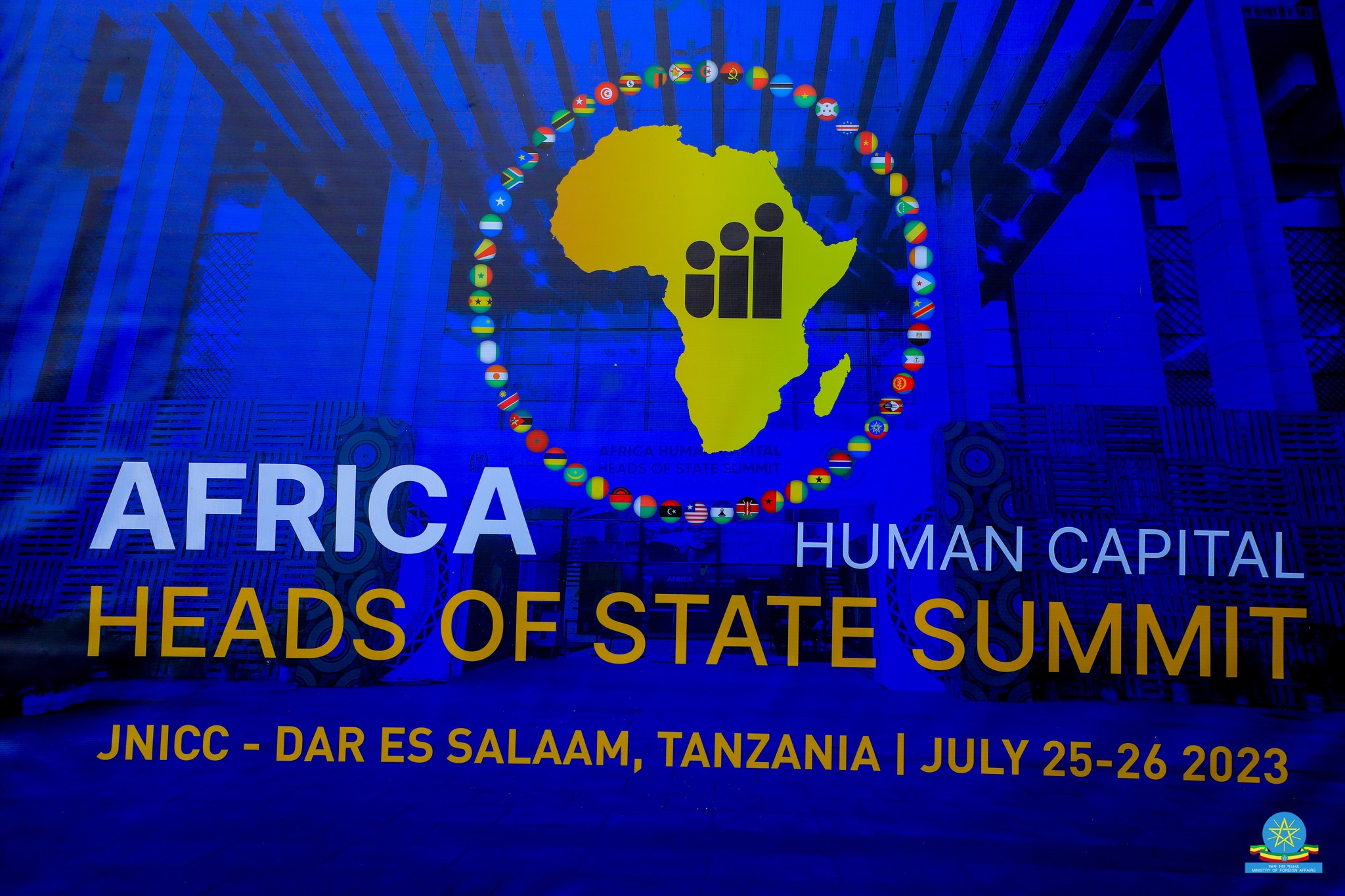Human Capital Investment is A Priority for Africa - ENA English
Human Capital Investment is A Priority for Africa

Bereket Sisay (ENA)
The Human Capital Heads of State Summit, held July 25-26 in Dar Es Salaam, Tanzania under the theme “Accelerating Africa’s Economic Growth: Boosting Youth Productivity by Improving Learning and Skills.” The summit, attended by more than 2,000 delegates from 44 African countries, including eight heads of state and government, vice presidents, prime ministers and ministers, concluded with major recommendations for fully harnessing the continent's human capital. Expanding access to education and increasing the involvement of international and regional financial institutions were suggested as essential to harness human resources. Greater synergy between government and private institutions was also recommended, along with the expansion of training facilities for the efficient management and use of natural resources.
Since 2000, Africa has experienced sustained economic growth which has contributed significantly to improving the quality of life of its people. In particular, much progress has been made in transforming the agricultural sector - on which much of the population depends, developing manufacturing centers and industries, and modernizing the tourism sector as a major economic driver. Africa has achieved this by changing its development trajectory and reorienting itself towards mobilizing domestic resources, increasing development financing and attracting foreign direct investment. However, Africa continues to lag behind on key development indicators, as the progress made over the past two decades has not kept pace with the continent's growing population and needs.
As a result, many African citizens remain trapped in poverty, and related problems continue to plague the continent in a vicious cycle. World Bank data shows that the poverty rate in Sub-Saharan Africa has not fallen fast enough to keep up with population growth in the region and close to 433 million Africans are estimated to live in extreme poverty in 2018 rising from 284 million in 1990. In addition, poverty and other compounding structural problems have forced the continent to fall short of the UN Sustainable Development Goals. Rising food and energy prices caused by the ongoing war between Ukraine and Russia, coupled with the adverse effects of climate change, have hampered African efforts to achieve these goals. It also projected that at least 492 million people will remain in extreme poverty by 2030 if the necessary measures to accelerate progress towards the SDGs are not taken.
These challenges seem baffling, given the continent's wealth of natural and human resources, which have the potential of transforming not only Africa, but the world. Africa is endowed with a variety of untapped natural resources such as arable land, water, minerals, oil and gas, which are important variables for sustainable development. In addition, Africa's population is young and growing rapidly: more than half of Africa's total population is under the age of 20, and according to the latest UN projections, this population size will double by 2050, with half of this population under the age of 25. However, this burgeoning young population holds both risk and opportunity for the continent. While human capital promises to be the key driver of Africa's growth, we shouldn't lose sight of the fact that rein in demographic pressures is an important measure to achieve balanced growth.
Therefore, investing in and leveraging human capital is the only option in Africa to better avert the potential risks that come along with unregulated population growth. African governments need to build robust economies that can effectively absorb the current and coming labor force to continuously contribute to steady economic growth with productivity. Recent data from the World Bank shows that the current labor markets in Africa disfavors the young population, with youth accounting for 60% of the total unemployed population. Therefore, this reality needs to be reversed and young population should be mainstreamed in the labor market and be the catalyst for development and growth rather than a contributing factor to economic downturn. For this to happen, Africa in general and countries in particular need to invest in human capital, from the education sector to the labor market, in order to effectively harness the demographic dividend.
High-quality education, with a focus on science, mathematics and engineering, must be further expanded to solve current problems and to fully exploit natural resources to transform people's lives. It is crucial to invest in practical knowledge and skills in order to have an innovative solution to better transform internal development capacity into a reality of tangible growth. Since human development is a capital-intensive project in itself, capital investment is crucial, and this calls for concerned bodies; governments and financial institutions to channel funds into the entire spectrum of human capital development. Such bold measures will inevitably push Africa's growth agenda to include youth as an important factor in economic development, with potential spillover effects on various sectors.
In addition, Africa has long been on the margins of international economic globalization as a result of its internal low level of economic performance. This is obviously due to the inability of the continent to make full use of its human and natural resources to bring about a major transformation in the economic sector. Therefore, prioritizing human development and shifting towards full exploitation of natural resources is the only option for Africa. This will bring about significant economic development while paving the way for Africa to play an important role in global socio-economic development, thereby creating a better world.